This year has been a good year for terns on the Isle of May too. There are more breeding birds than ever before, helped by the provision of more prepared ground and protective measures, but no one quite knows why breeding numbers at a given site fluctuate but they do. There were also a pair of breeding Sandwich Terns this year too, a first record I believe, so along with a good number of Common Terns, there was no shortage of photo opportunities.
This year the season was late. Although many eggs had hatched the chicks were not much in evidence yet, most still hidden beneath a parent bird whilst waiting for the other parent to return with some food. It's when they leave the protection of a parent that they become vulnerable, an easy meal for an opportunistic gull.
Every visitor to the island is given an introductory briefing asking them to a) keep to the footpaths and b) avoid lingering in the tern breeding colonies. The vast majority do just that but sadly one or two can't resist. Some think its great fun to be attacked by the terns, others are just trying to get an interesting shot.
There's no doubt in attack mode they look quite stunning.
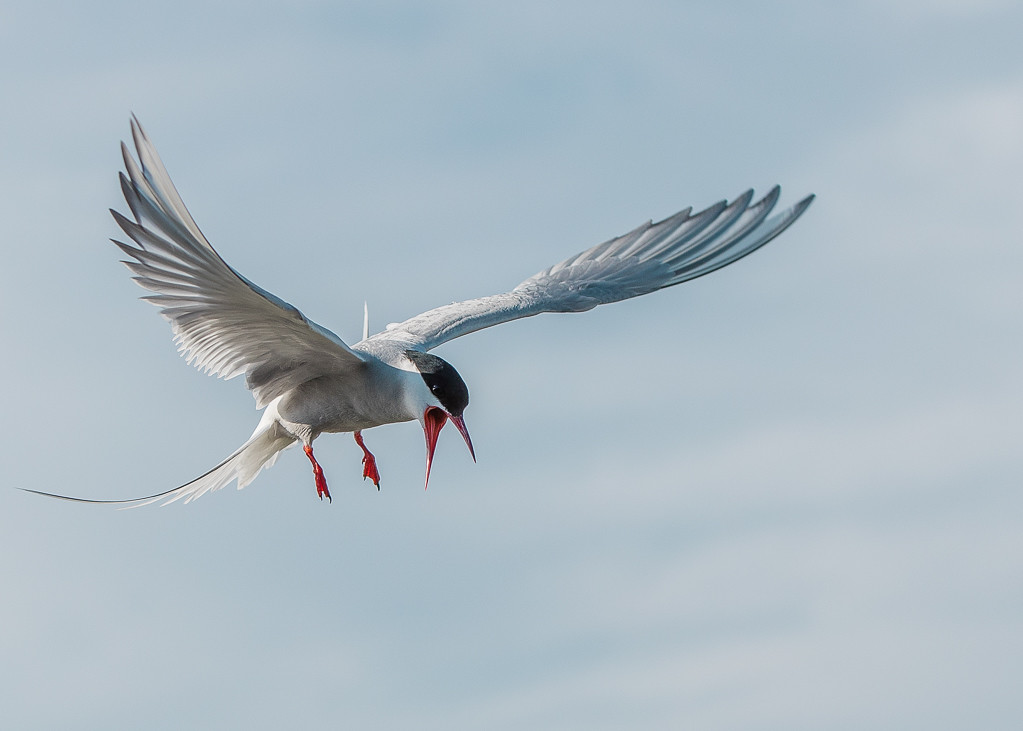
Hanging in the air they often display features like their tail feathers in a stunning fashion.
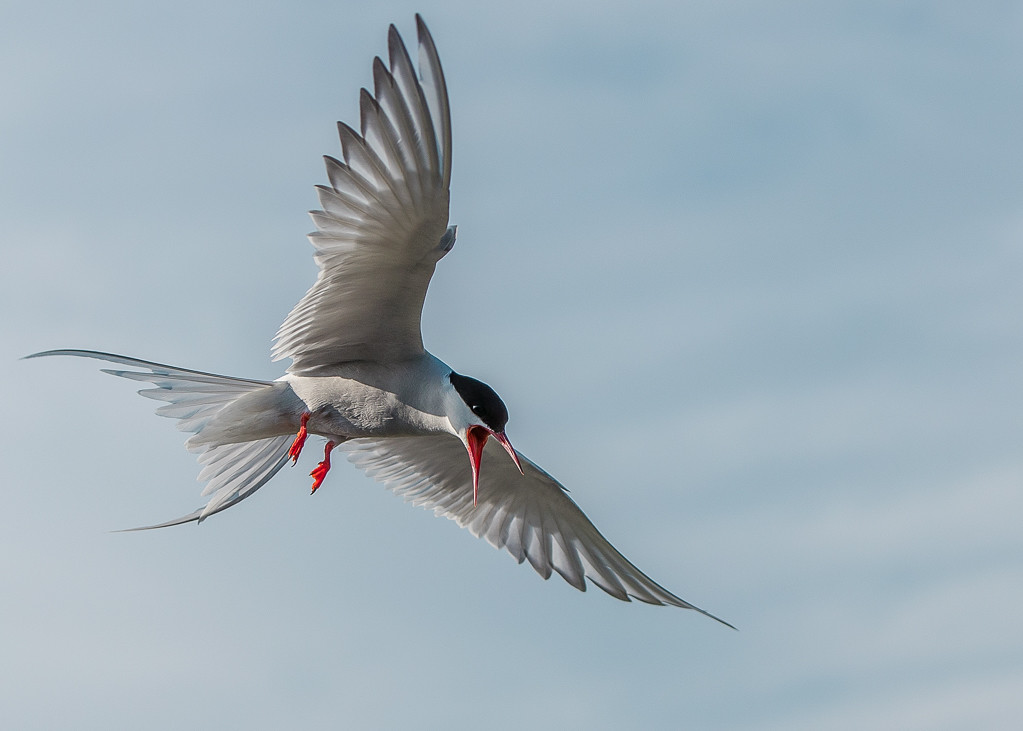
Standing underneath you can get your comeuppance with either a peck on the head or an unpleasant dollop of yesterday's dinner.
Some folk still take no heed. If you have a long lens you just wait for someone else to be the target, but even with a little lens you can get a close up shot.
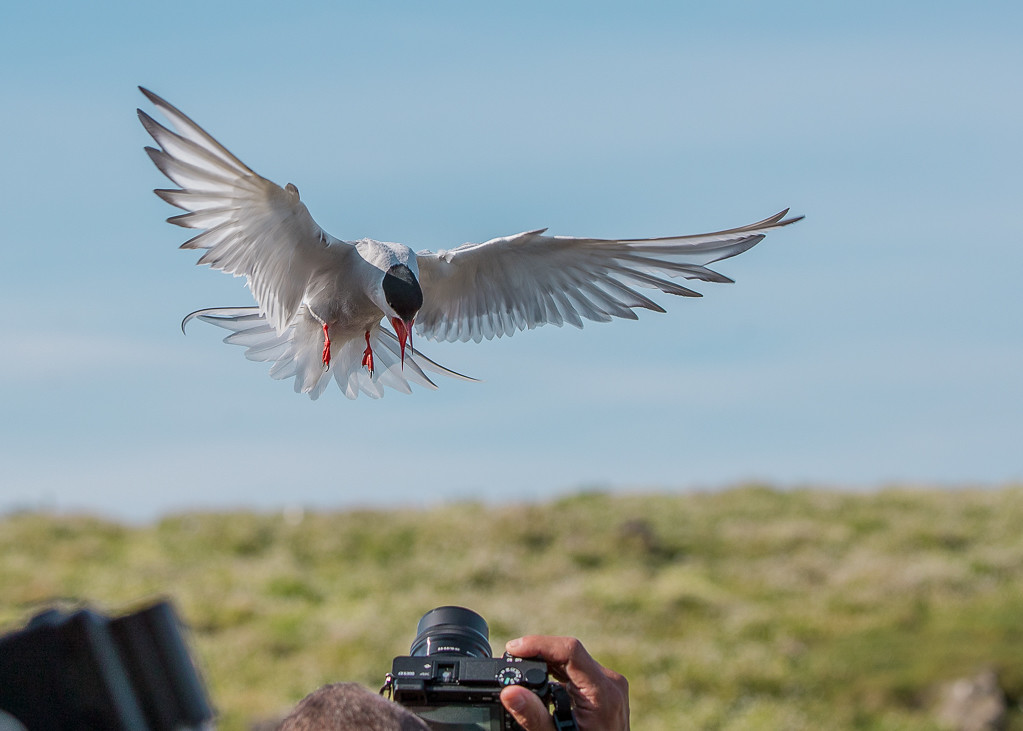
In fairness that guy is stood on the viewing platform and the bird that has decided to see him off was actually one of a pair nesting just in front, it's mate was sat on the nest whilst this one was happily sat on the balcony rail.
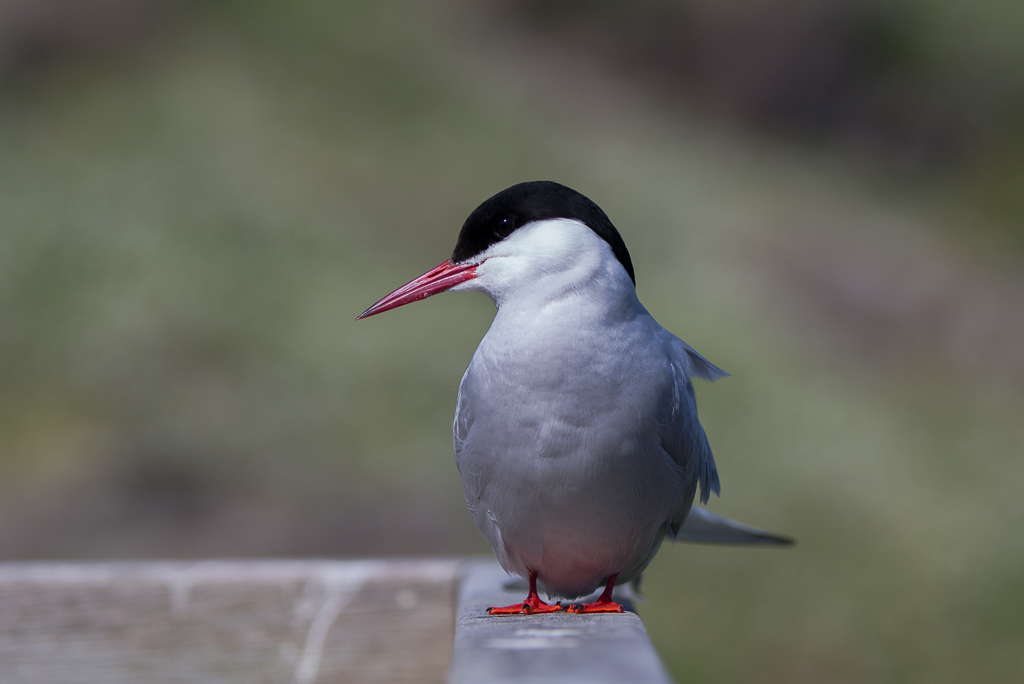
You would have thought they had got used to visitors but they haven't. They don't realise that humans don't present a threat and course if there is just one adult to protect the nest, the minute it gets up, the chick is open to predation. Observers on the island are currently surveying the effects of visitor intrusion on the island to try and work out how negative this is on survival numbers. It's inevitable that there will be disturbance, not only by day trippers but by residents too, Unfortunately some birds choose to nest right next to main thoroughfares such as from the harbour on to the island.
Personally though I think shots of the birds returning with food are just as appealing if not more so. Standing under the cover of the visitor centre the Terns are not concerned about you and just get on with their daily business.
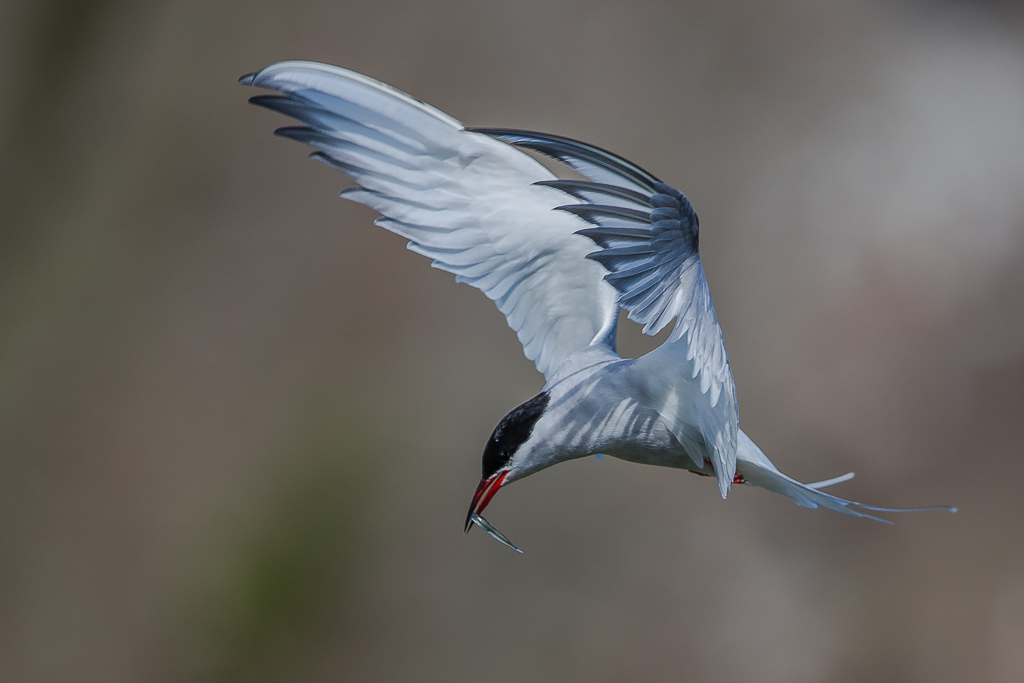
Not all return with food either.
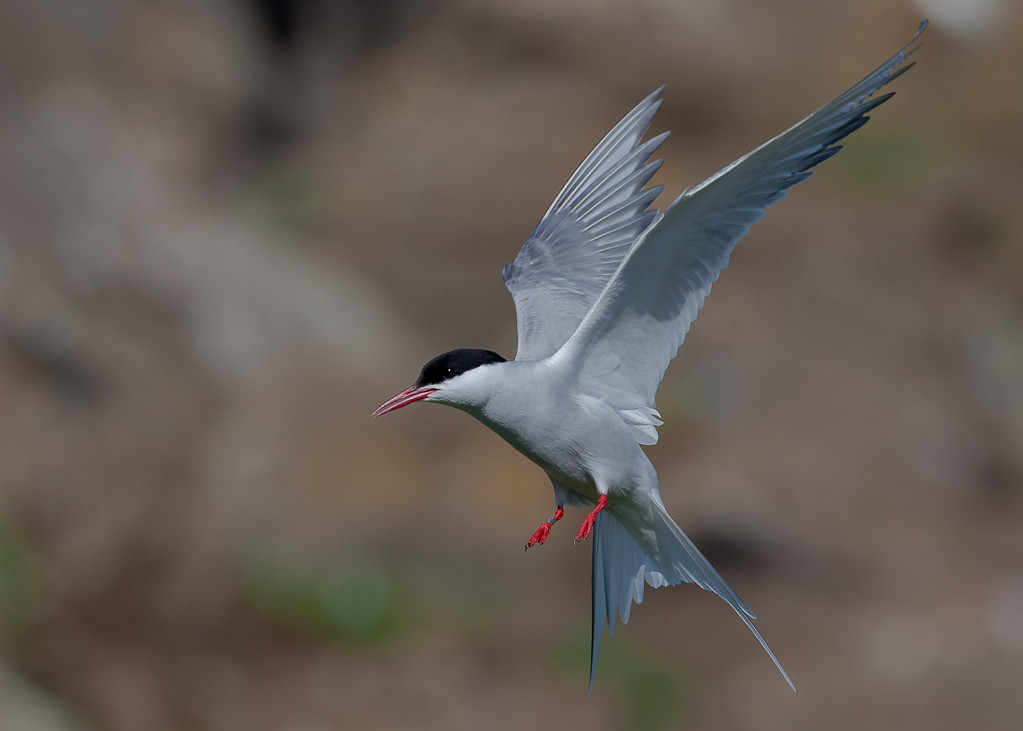
but when you are not looking up in the air you also have an opportunity for a better bokeh, such as the yellow litchen covered rocks.
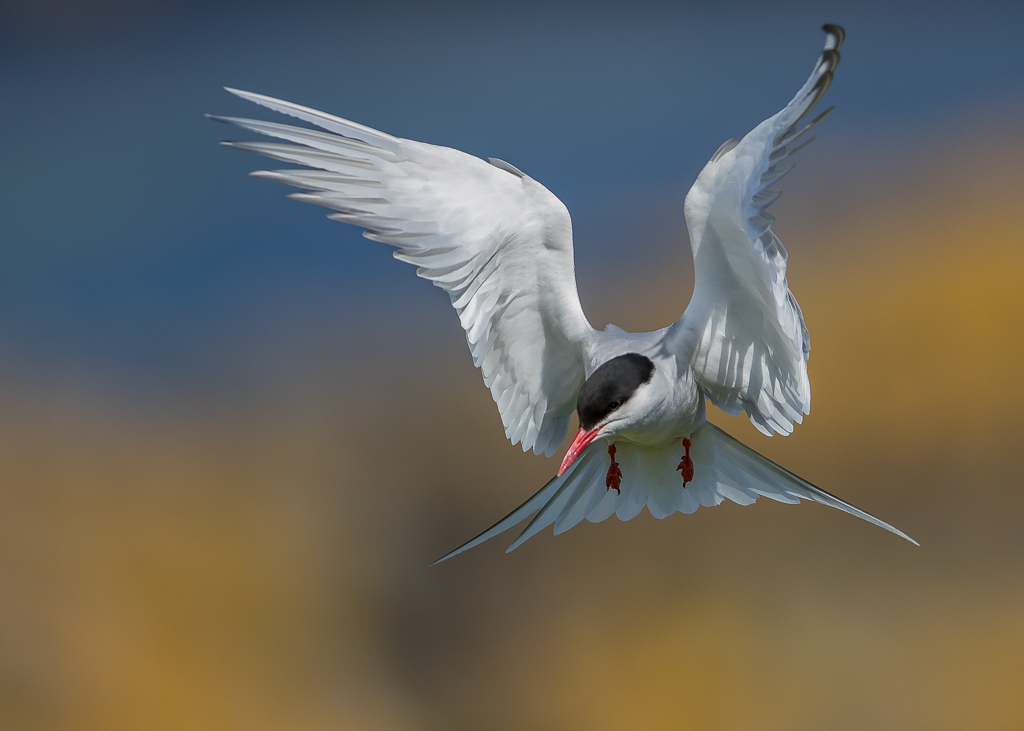
What I prefer though is to watch the birds on water.
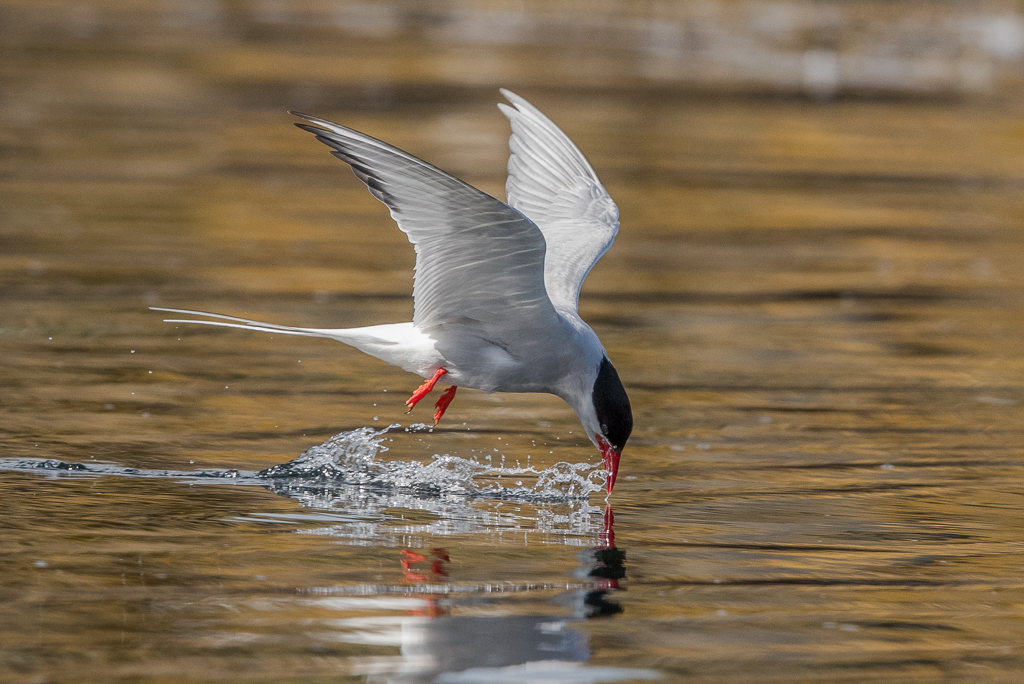
Sometimes they appear to drink
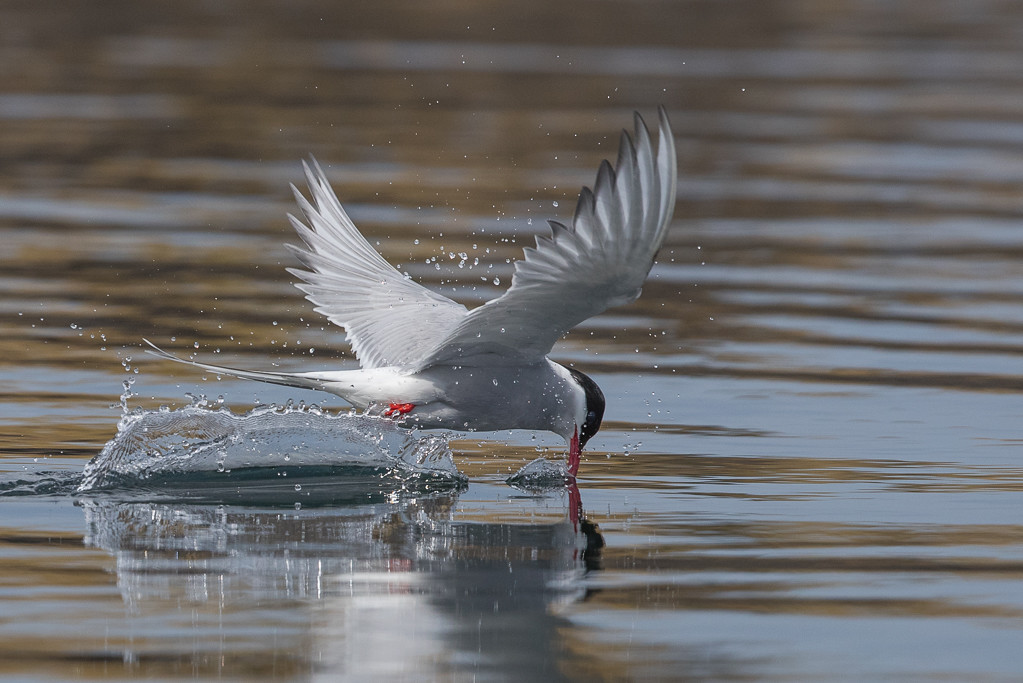
or possibly they are just washing their bills after a spot of grooming.
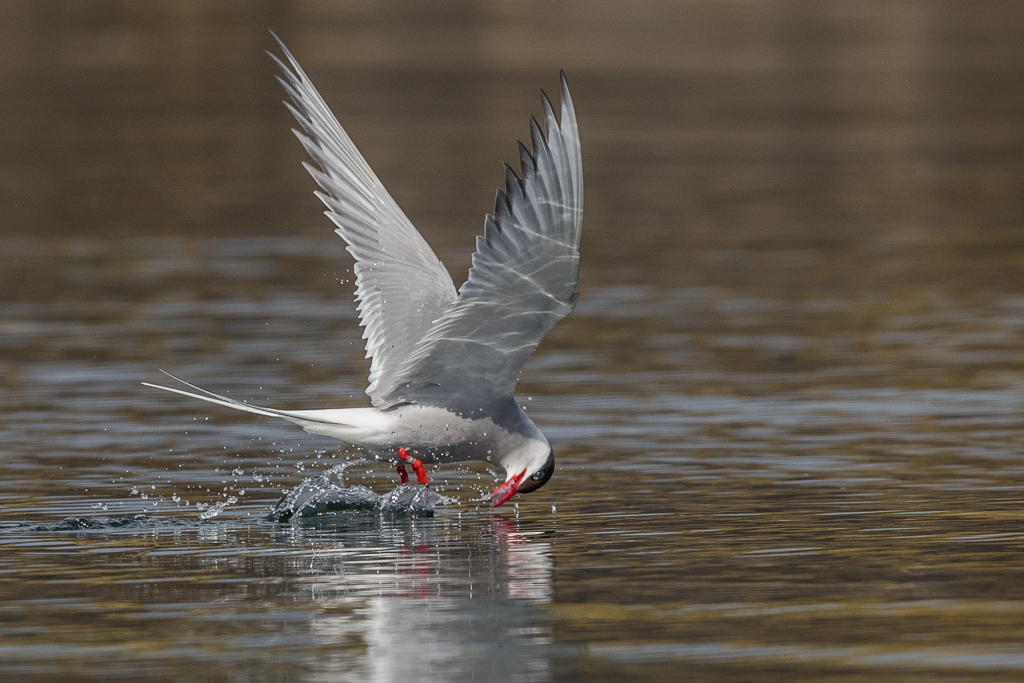
What I have noticed though is that all is not what it appears.
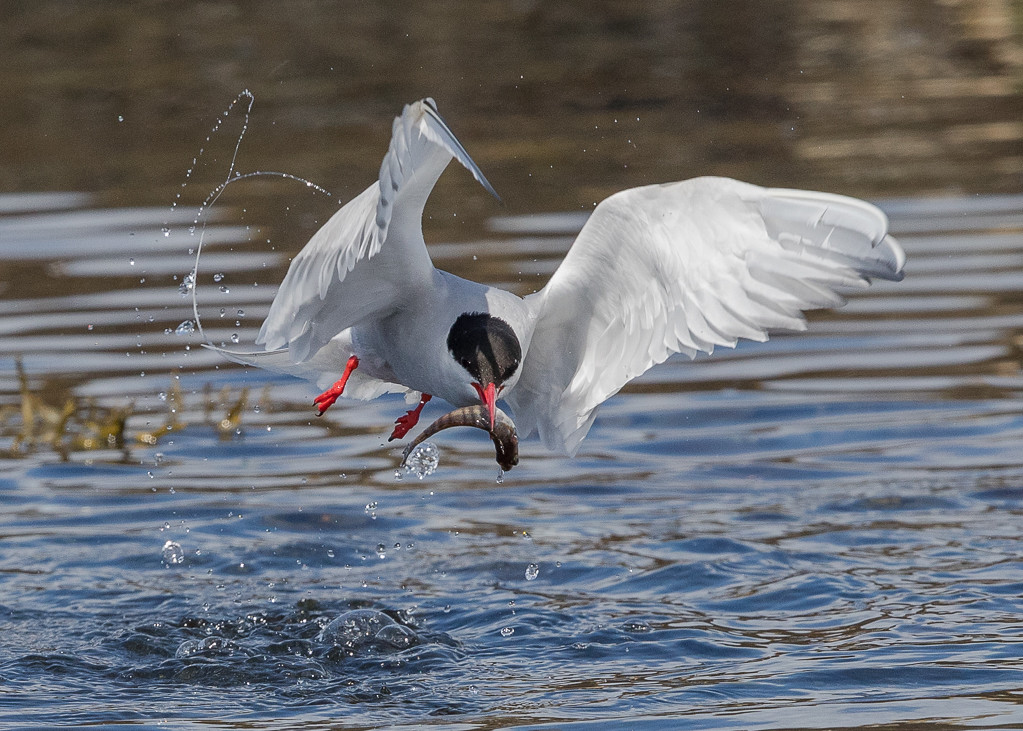
This isn't the bird rising from the water after a successful dive.
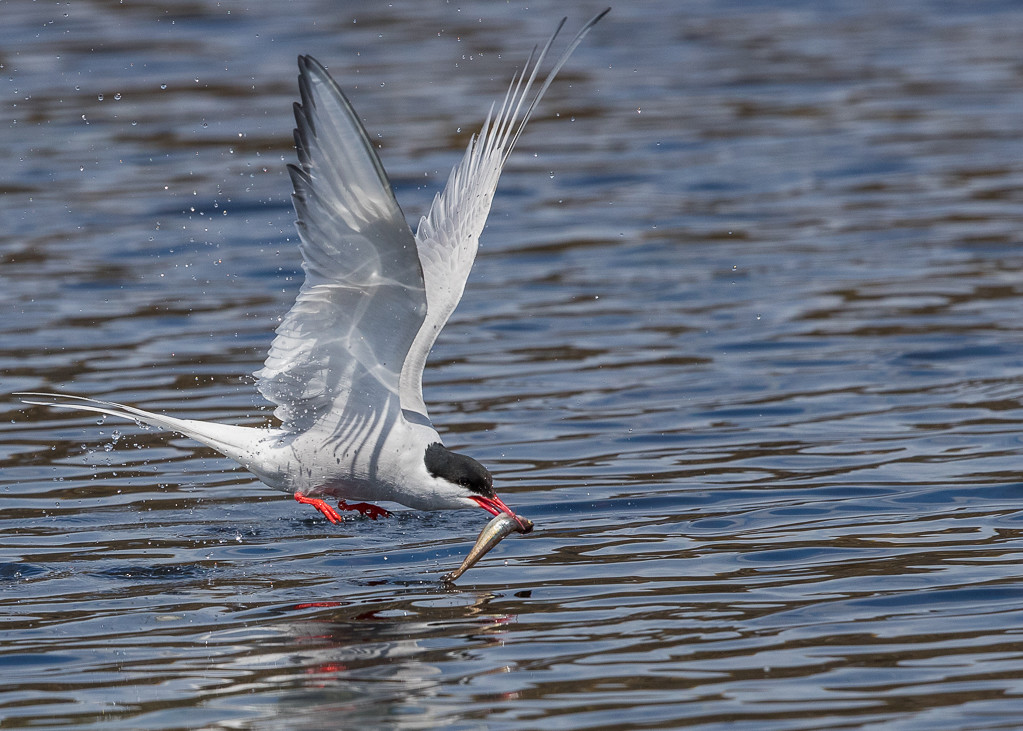
The Terns appear to refresh the fish by dipping it in the water.
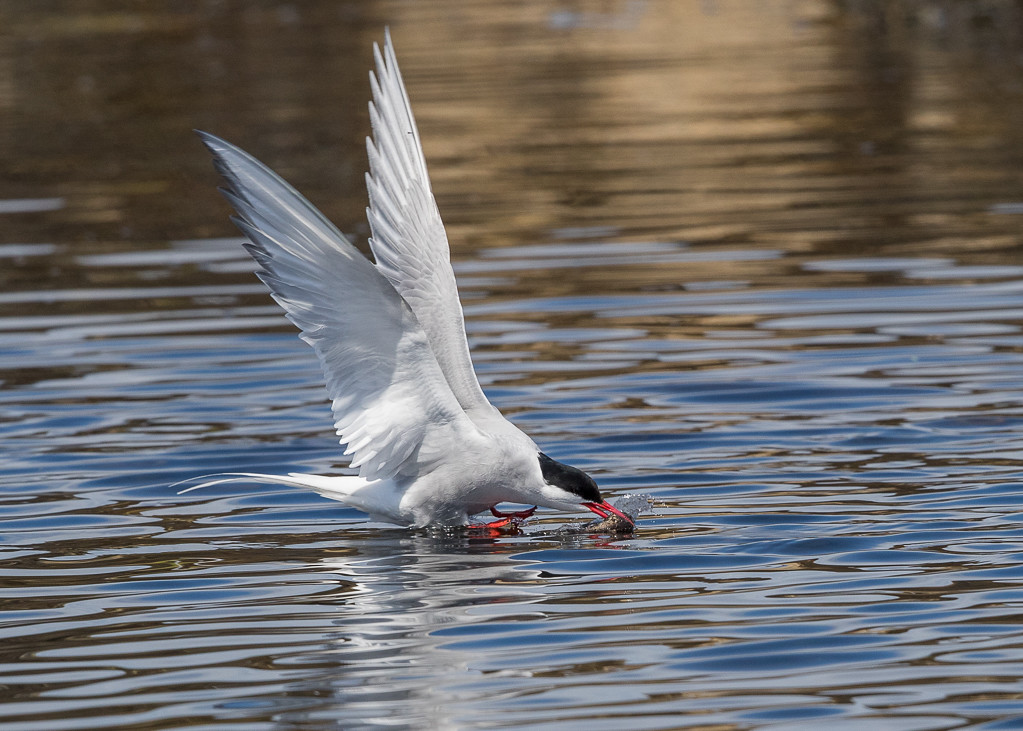
I am only guessing.
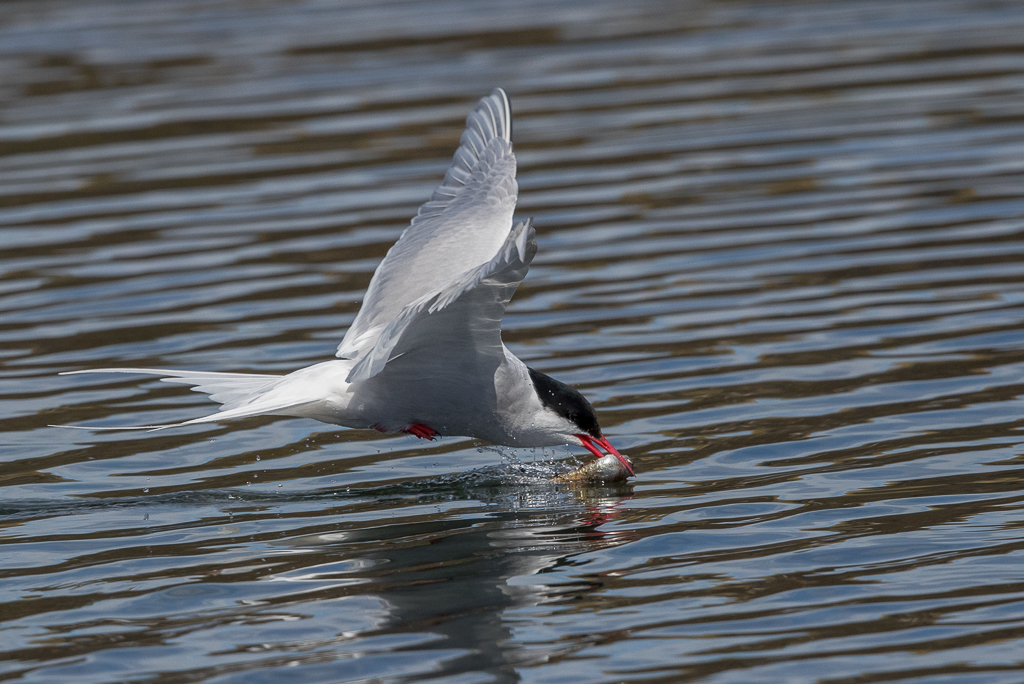
but perhaps if they have flown some distance with the fish it has become air dried and more difficult for a young chick to eat.
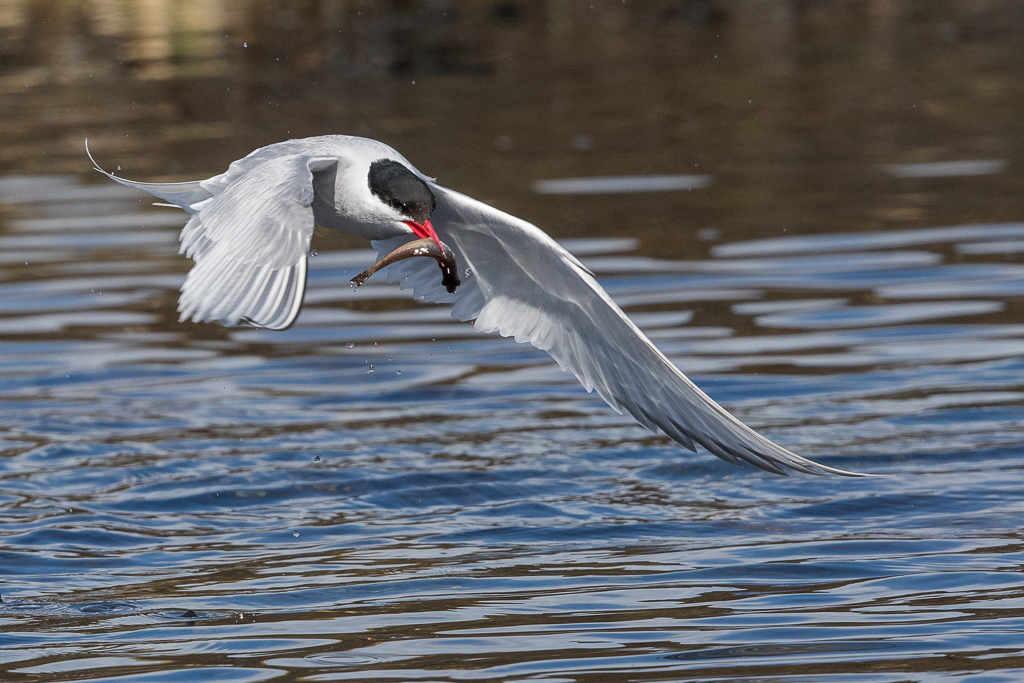
and a return to water makes the fish slimy and easy to swallow.
Certainly makes the Terns amongst my favourite photo subjects.
T.B.C.
No comments:
Post a Comment